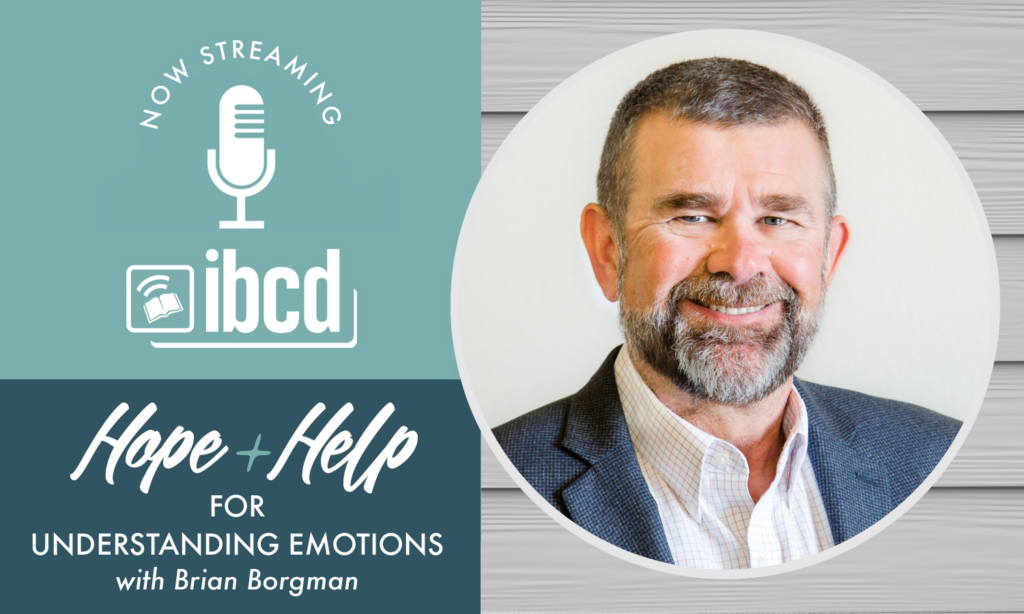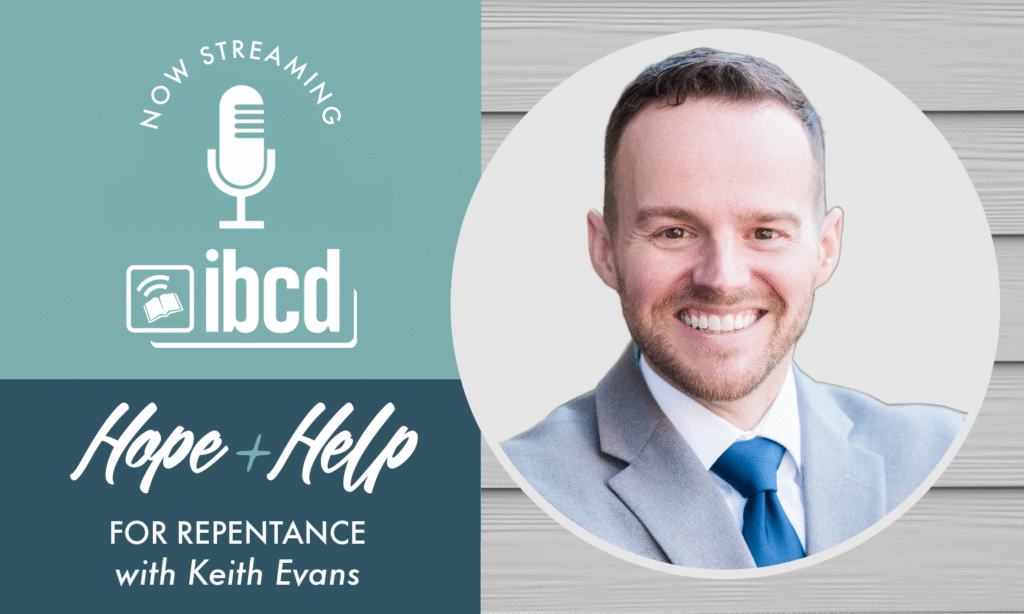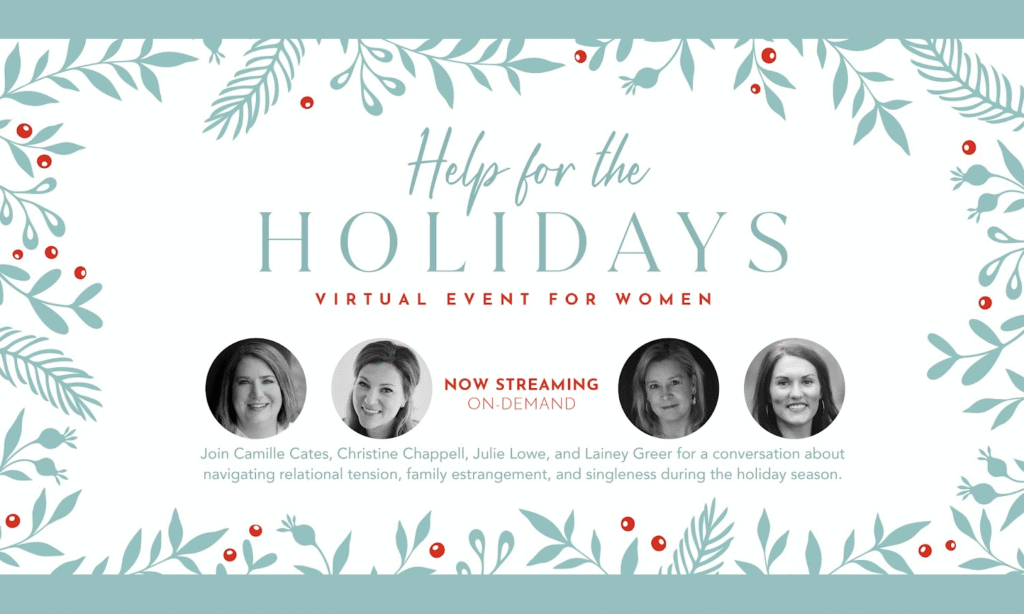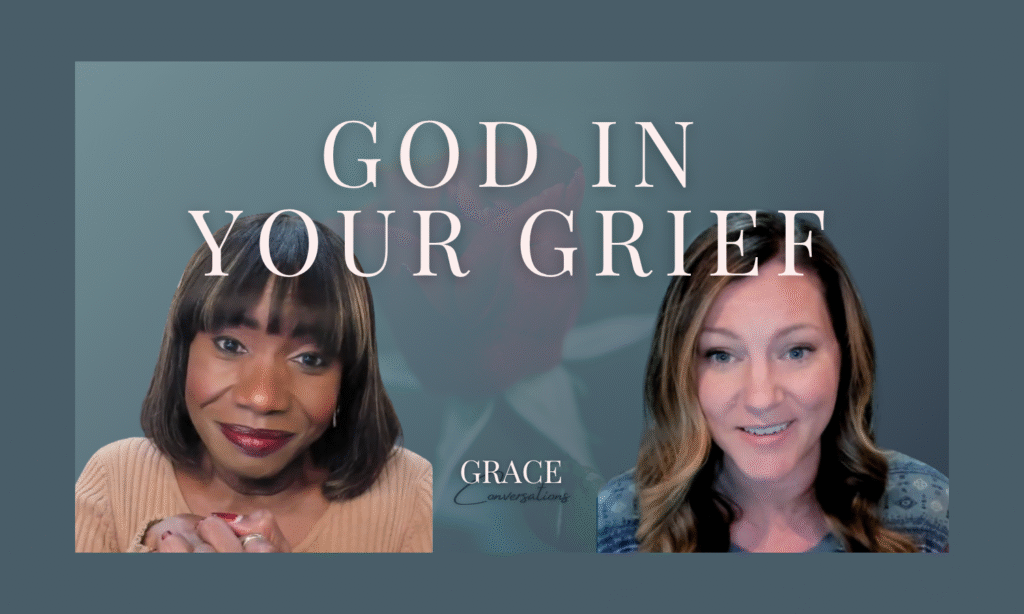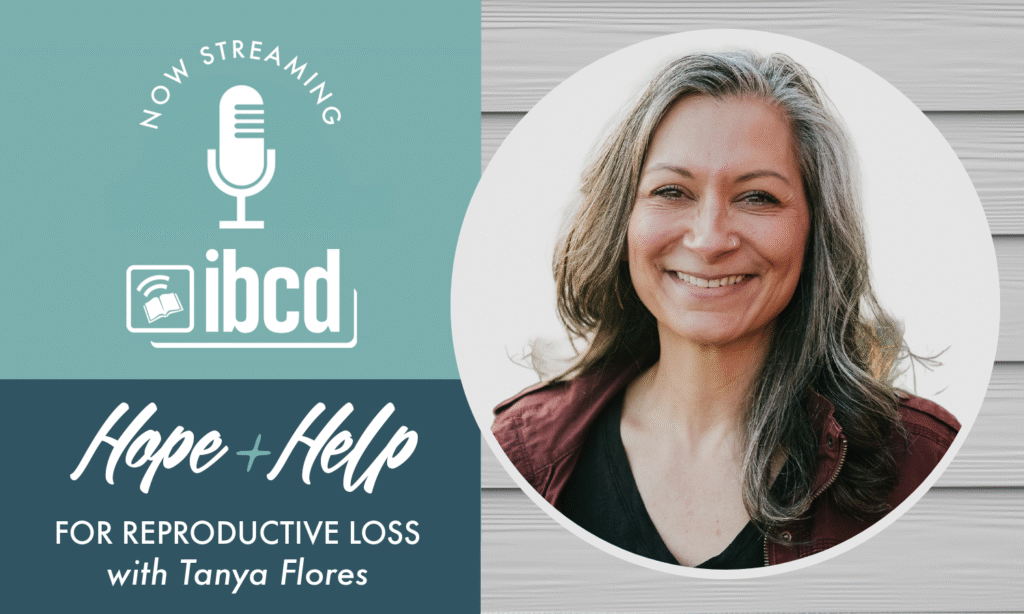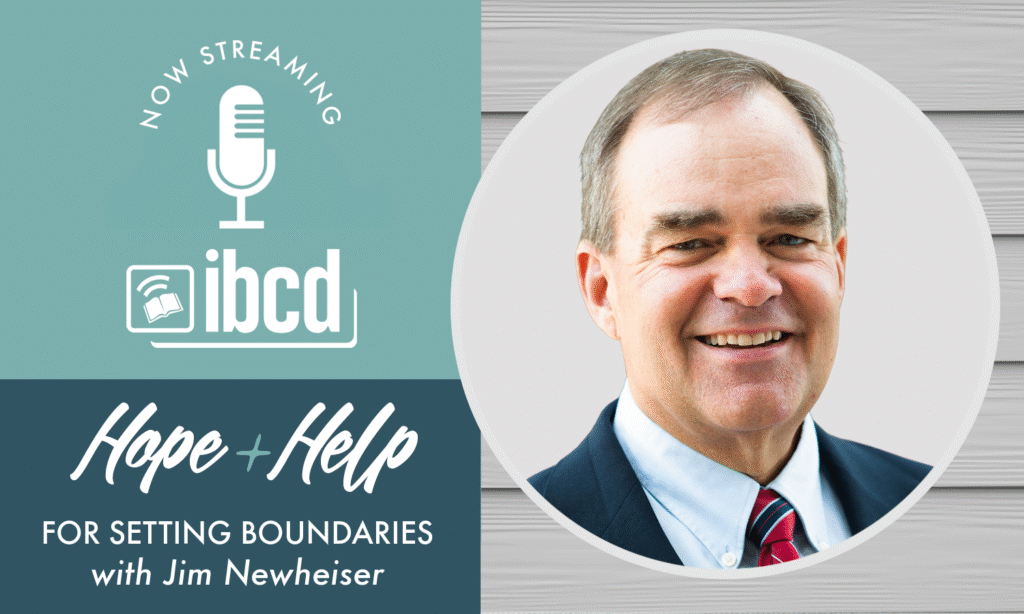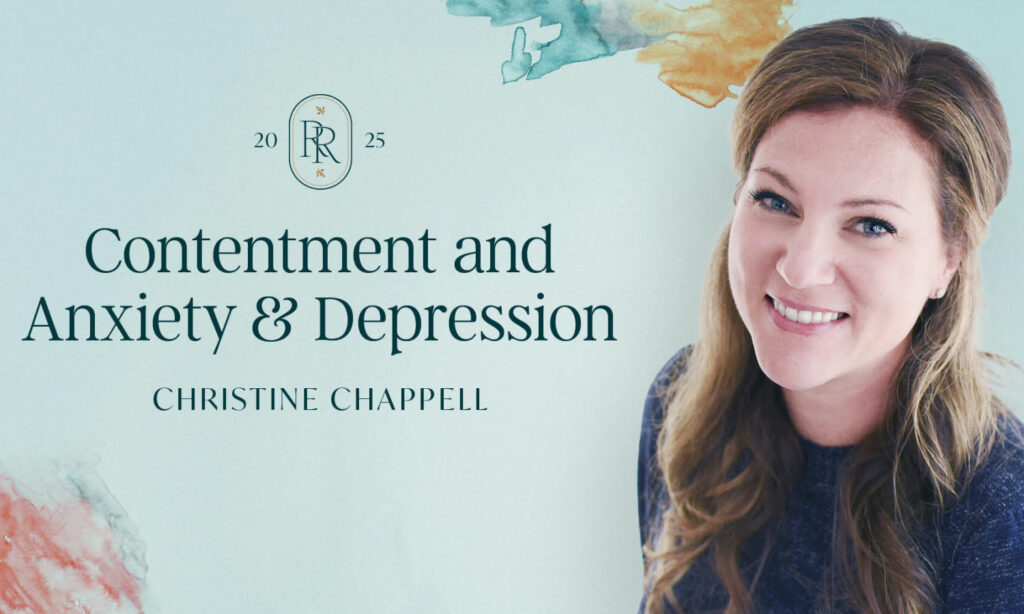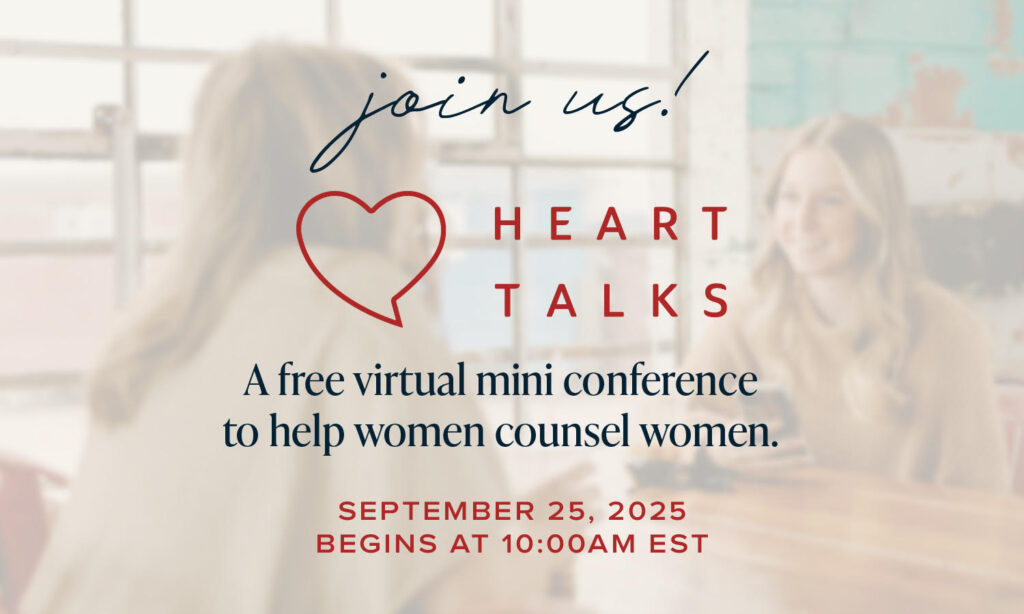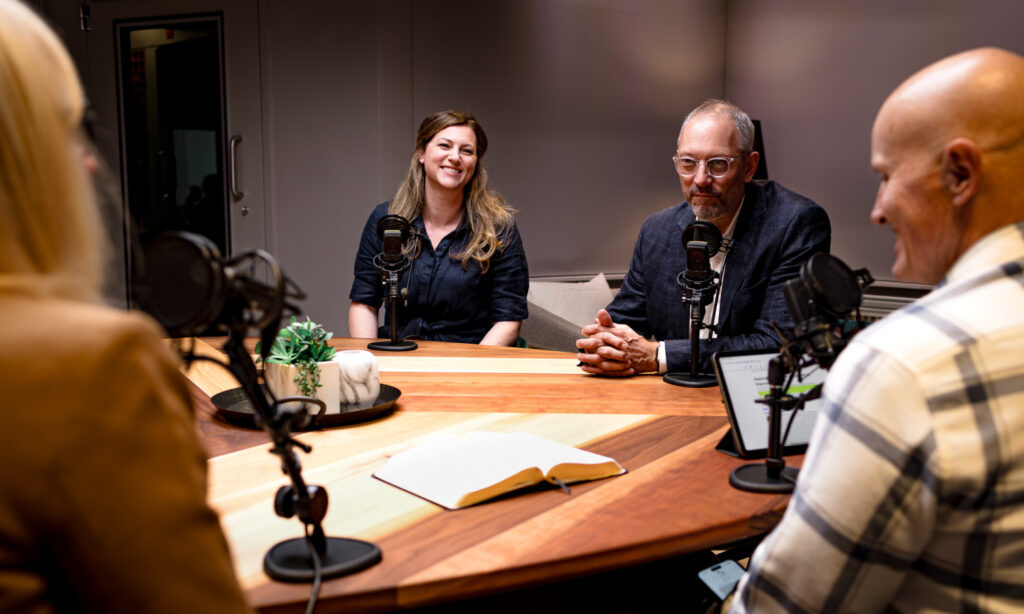This post originally appeared on Facebook on September 12, 2019. Read the post at this link.
"Depression is a heart issue. Period."
"Depression is a physical issue. Period."
Heart issue or head issue? Spiritual or physical? Because I happen to be training in the biblical counseling movement, I have the opportunity to observe how depression is addressed and represented to the public on a daily basis from both ends of the spectrum. Sometimes, by people who have experienced it themselves. Sometimes, by counselors who have a great passion for helping hurting people.
But sometimes, I observe harsh opinions about the underpinnings of depression and the spiritual lives of those who experience it. And it is during those times that I am most grieved about what I see taking place in the conversation. In an effort to try and prove who is right or wrong, the human experience of debilitating sorrow is often overlooked. Challenge supersedes compassion. Whatever side of the conversation we happen to stand on, we forget that depression is first and foremost a human issue. Not first a heart issue, or first a head issue—a human suffering issue.
We experience depression because we are finite humans living in a fallen, broken world under a curse that decays bodies and souls in millions of seen and unseen ways.
People truly suffer while walking through depression. They cry. They wish they didn't exist. They watch friends fade away faster than a spent match. They receive harsh and unkind words from loved ones too impatient to bear their burden. They are weary from a constant barrage of negative self-talk that plagues them every minute of every waking hour. Thoughts pop into their minds from seemingly out of nowhere. They believe they are alone in the world. They think no one could possibly understand what they are going through. They can't eat. They toss and turn at night. They wish it to go away but alas, they cannot make it so. They know they need to pray but they cannot eek out the words. They go to church but feel disconnected from every minute of it. Worship is merely a time to cry and lament that every ounce of joy has abandoned them. They wonder where God has gone. They grieve over their spiritual dryness. They feel numb. They feel nothing. They take medication which opens up a slew of unwanted side effects, sometimes worsening the condition altogether. They don't know who to trust or what to do but they know that to live one more day in this kind of existence feels like the most impossible task one could ever endeavor upon. Read Psalm 88 and you will know this experience is not abnormal for the child of God.
Then somehow, they manage to exhaust themselves to sleep. And they wake up to walk through the same gauntlet again. Day after day after day it repeats—and nothing seems to change. "Maybe it won't," they fear. Hopelessness settles in. Desperation becomes a wicked friend.
"Depression is a physical issue. Period."
Heart issue or head issue? Spiritual or physical? Because I happen to be training in the biblical counseling movement, I have the opportunity to observe how depression is addressed and represented to the public on a daily basis from both ends of the spectrum. Sometimes, by people who have experienced it themselves. Sometimes, by counselors who have a great passion for helping hurting people.
But sometimes, I observe harsh opinions about the underpinnings of depression and the spiritual lives of those who experience it. And it is during those times that I am most grieved about what I see taking place in the conversation. In an effort to try and prove who is right or wrong, the human experience of debilitating sorrow is often overlooked. Challenge supersedes compassion. Whatever side of the conversation we happen to stand on, we forget that depression is first and foremost a human issue. Not first a heart issue, or first a head issue—a human suffering issue.
We experience depression because we are finite humans living in a fallen, broken world under a curse that decays bodies and souls in millions of seen and unseen ways.
People truly suffer while walking through depression. They cry. They wish they didn't exist. They watch friends fade away faster than a spent match. They receive harsh and unkind words from loved ones too impatient to bear their burden. They are weary from a constant barrage of negative self-talk that plagues them every minute of every waking hour. Thoughts pop into their minds from seemingly out of nowhere. They believe they are alone in the world. They think no one could possibly understand what they are going through. They can't eat. They toss and turn at night. They wish it to go away but alas, they cannot make it so. They know they need to pray but they cannot eek out the words. They go to church but feel disconnected from every minute of it. Worship is merely a time to cry and lament that every ounce of joy has abandoned them. They wonder where God has gone. They grieve over their spiritual dryness. They feel numb. They feel nothing. They take medication which opens up a slew of unwanted side effects, sometimes worsening the condition altogether. They don't know who to trust or what to do but they know that to live one more day in this kind of existence feels like the most impossible task one could ever endeavor upon. Read Psalm 88 and you will know this experience is not abnormal for the child of God.
Then somehow, they manage to exhaust themselves to sleep. And they wake up to walk through the same gauntlet again. Day after day after day it repeats—and nothing seems to change. "Maybe it won't," they fear. Hopelessness settles in. Desperation becomes a wicked friend.
Whatever side of the conversation we happen to stand on, we forget that depression is first and foremost a human issue.
Sadly, some are made to feel guilty for bringing the season upon themselves. There are those who would offer that depressed people have made their beds and must lie in them. If only they would have done XYZ, they would have been able to thwart this pitiful condition altogether.
Friends, please. Remember these are humans. Remember that depression is real suffering, whatever the underlying cause might be. There is often an element of mystery to it—sometimes we will not figure out why the darkness has settled upon us. Of course sin is intermingled into the experience...when do we breathe and not have our hearts flailing against some kind of spiritual issue? The mother who has lost a child—does she not wrestle with spiritual doubts and anger? The man who has been diagnosed with terminal cancer, does he not have anxieties and fears about the future?
But we do not approach these with the same lack of empathy. Instead, we see the ache and the sadness and we mourn with them. There is no reason for this to be different when someone is hurting because they are walking through a season of depression.
Suffering is suffering. Sorrow is sorrow. Grief is grief. Hurt is hurt. To take a posture that communicates we will only comfort and console someone who is experiencing "real" suffering is to reveal a regrettable ignorance about what it is to live one wretched day in a Psalm 88 frame of mind.
Viewing people who limp with dread through the Great Despond as bodies to medicate or souls to discipline is a tragic oversimplification of what a depressed person truly requires: our compassionate humanity. I implore you not to forget. Do not forget the human.
Friends, please. Remember these are humans. Remember that depression is real suffering, whatever the underlying cause might be. There is often an element of mystery to it—sometimes we will not figure out why the darkness has settled upon us. Of course sin is intermingled into the experience...when do we breathe and not have our hearts flailing against some kind of spiritual issue? The mother who has lost a child—does she not wrestle with spiritual doubts and anger? The man who has been diagnosed with terminal cancer, does he not have anxieties and fears about the future?
But we do not approach these with the same lack of empathy. Instead, we see the ache and the sadness and we mourn with them. There is no reason for this to be different when someone is hurting because they are walking through a season of depression.
Suffering is suffering. Sorrow is sorrow. Grief is grief. Hurt is hurt. To take a posture that communicates we will only comfort and console someone who is experiencing "real" suffering is to reveal a regrettable ignorance about what it is to live one wretched day in a Psalm 88 frame of mind.
Viewing people who limp with dread through the Great Despond as bodies to medicate or souls to discipline is a tragic oversimplification of what a depressed person truly requires: our compassionate humanity. I implore you not to forget. Do not forget the human.

Christine M. Chappell
Author/Writer/Speaker
Christine Chappell is the author of Clean Home, Messy Heart, the host of The Hope + Help Project podcast, and is a guest contributor at Desiring God. She writes frequently about motherhood, sin, and sorrow at her blog, has completed biblical counseling certificates with the Institute for Biblical Counseling & Discipleship, and is currently pursuing certification with the Association of Certified Biblical Counselors.
Click to learn more about my weekly resources.
Every week, a different topic.
Carefully curated Christ-centered resources designed to equip you to face life's challenges with courage and clarity.
Helpful for sufferers, strugglers, and supporters alike.
Click the picture to the left, or the mail icon above to learn more about my weekly deliveries.
Or, if you know you want to receive them already–complete the form below.
Helpful for sufferers, strugglers, and supporters alike.
Click the picture to the left, or the mail icon above to learn more about my weekly deliveries.
Or, if you know you want to receive them already–complete the form below.
- All
- Biblical Counseling
- Blog Collection
- Faith in Life
- Lament
- Anxiety & Fear Episodes
- Christian Living Episodes
- Depression & Grief Episodes
- Hope + Help Podcast
- Events
- Addictive Habits Episodes
- Ask the Counselor
- Depression & Grief
- Grief & Loss
- Media & Interviews
- On-Demand Videos
- Press and Interviews
- Family Episodes
- Motherhood
- Motherhood Episodes
- Parenting Episodes
- Depression & Anxiety
- Live Recordings
- Articles
- For Care Providers
- Midnight Mercies
- Parenting & Depression
- Teens & Depression



